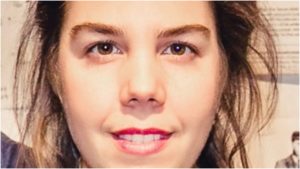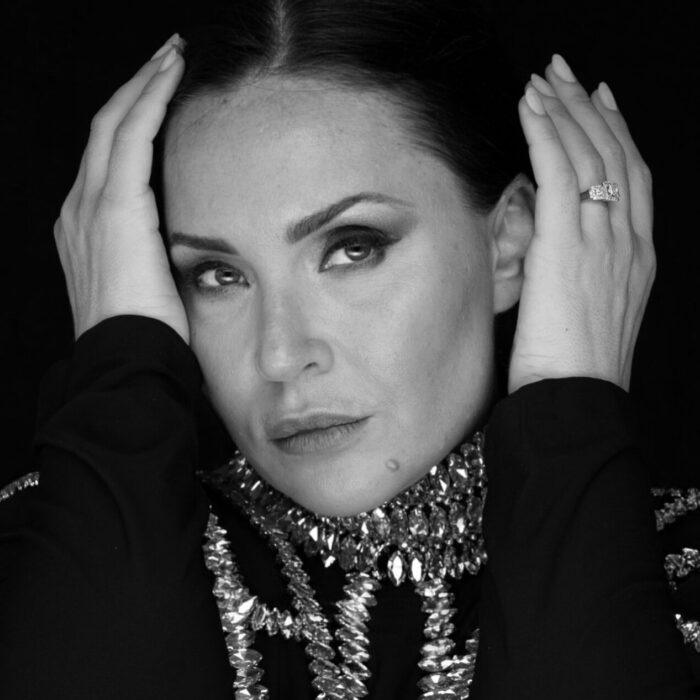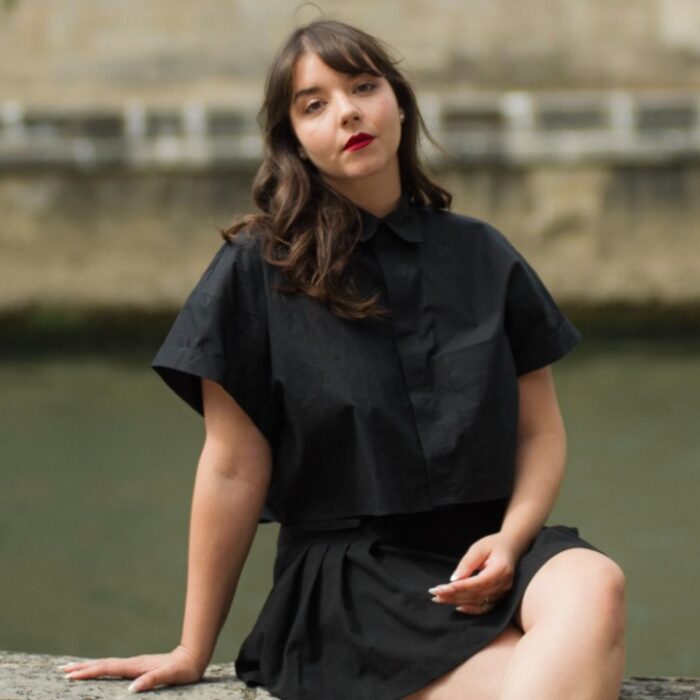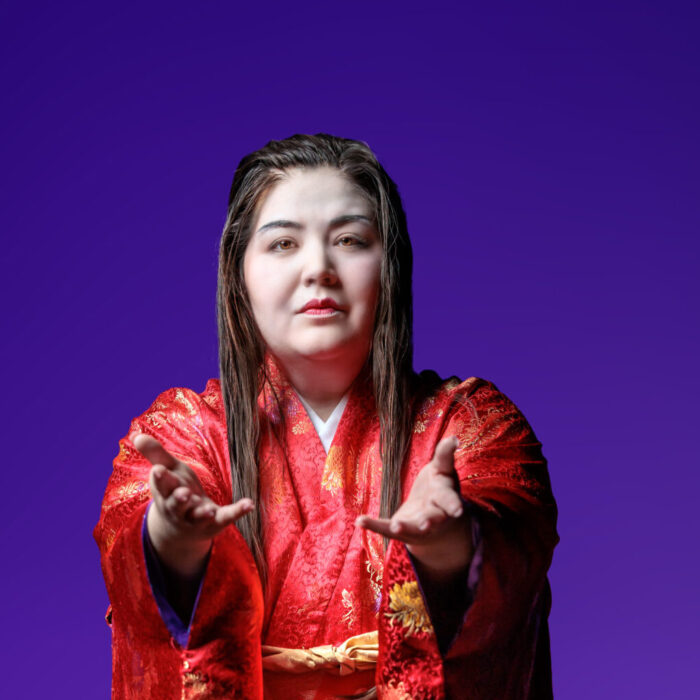
Interview: Director Jeanne Pansard-Besson On The Future of Opera
The Director Talks from The New Generation Festival, Florence
By Matt CostelloOf all the questions I asked Jeanne Pansard-Besson, who was deep in final rehearsals for a “Don Giovanni” at the New Generation Festival in Florence, there was one I was especially interested in hearing her answer to – In this age of on-demand everything (streaming, smart phones, Augmented Reality, Virtual Reality and what many people consider the very shrinking short–attention span of the human race in general), how can opera continue to have a major impact.
Her response? “Definitely we need to take that change into account. But all of that can be also an element in the world of the work. It can be part of that operatic world in ways we need explore.”
And then, I could see it: using the power of, say, Augmented Reality, which can take the real and unreal, and blend them into a seamless whole, bringing new creative opportunities.
And in that answer, Jeanne provides a key to the future of opera in this world that should be paid attention to. Namely, that those elements that some fear currently endanger… opera could become part of it. And that creative vision is an exciting one.
Trust & Magic
Jeanne Pansard-Besson’s background well-prepares her for such challenges.
Since completing a PhD in Classics at the University of Cambridge (with a thesis entitled Visualising Rome’s Foundation Myths), Jeanne has worked on operas with directors including Mariame Clément, Laurent Pelly, and Michael Boyd, in such venues as Glyndebourne Festival, Deutsche Oper Berlin, Opéra de Paris, Oper Graz, Garsington Opera, and Scottish Opera.
Last May, Pansard-Besson staged “La tragédie de Carmen,” Peter Brook’s slimmed-down version of the classic opera in the newly re-opened theatre of the Royal Academy of Music in London.
Anyone who has read Brook’s “The Empty Space,” would recognize that the visionary auteur would suggest that the director uses what one has, finding where the core elements of a piece and staging can intersect.
Two key words that Pansard-Besson brought up in the interview as we continued to discuss the future of opera — especially in relationship to the big houses such as The Met – were “magic” and “trust.” One, a word of great and ancient power, the other, not expected but — as the director explained — equally important.
“The question,” Pansard-Besson said, “is less a matter of health of opera today than trust. Audiences need be able to attend a performance — without prior knowledge — and trust that the experience can be shaped to be so rich, that people come out, having enjoyed the work, touched by the performance.”
It is working to achieve that “magic” that her recent work with “Carmen” obviously influenced her. As Pasnard-Besson says, “one can take a circle of sand on the stage and transform it into a magical setting.”
Don Giovanni
Which bring us to her very different, current work as Associate Director of “Don Giovanni” at this New Generation festival, in its second year.
One can look at the venue for this festival, the lavish Corsini Gardens estate in Florence, ”featuring many ancient Roman sculptures”, and Pansard-Besson said, “it would be hard not to have that setting impact your directing.”
She also cited her work at the 2017 Garsington Opera Festival on Debussy’s gossamer-like “Pelléas et Mélisande.” “The setting at Garsington in the open air definitely played a role in the piece. That setting itself becomes part of the work.”
For The New Generation Festival, Pansard-Besson was brought in to “Don Giovanni” after work had started, and it is – she said – a traditional production. No sand on the stage this time or bricks representing a castle.
“I had worked on the piece on the Jonathan Kent production at Glyndebourne, so I arrived with many ideas.”
And besides her previous encounter with the Don, she has also found this an opportunity to bring her background to bear in her work with the singers. “The cast is wonderful and I have especially enjoyed working in detail with the women, Anush Hovannisyan (Donna Anna), Louise Kemény (Zerlina) and Rachel Kelly (Donna Elvira). Those three female characters so different, yet all on a journey of discovery.”
I had to ask whether this tale of a libertine needed to be looked at differently, in this age of #metoo. And again, Jeanne sees such works as classic myths in the way they reveal more about the times when they are performed.
“Don Giovanni is a disruptor,” she said “not unlike Carmen. With works like this, there are always more questions to be explored, more mystery raised by the piece. The characters can always reveal more. And yes, obviously today the work has different resonances, and that can prompt us to ask new questions.”
“There is a reason people do such classic works over and over. Myth is meant to be re-thought and re-presented. It never gets old.”
By the way, if you haven’t heard of The New Generation Festival or the Corsini Gardens (I hadn’t), it is worth a google visit to see what has to be a stunning location for this festival where — amidst the gardens and spumante– a director like Jeanne is helping performers bring operatic myth to life.
Beyond the Don
And after “Don Giovanni”, what does the future hold?
Pansard-Besson said that she has been asked back to direct at next year’s festival, though the opera for next year had to be – for now — left unnamed.
In addition, she will be working on Offenbach’s “La Belle Helene” at Nancy, premiering December 14th. And a documentary film project will bring her to New York City later this fall as well. Jeanne hopes to explore some of the operatic experiences the Big Apple offers.
And what operas might she want to tackle in the future?
“I’d love to tackle a work completely from scratch, working with a team. With the music, libretto, staging all being created by that team.”
I also had to ask — with her extensive background in myth — would the quartet of Wagner’s magnum opus, “Der Ring der Nibelungen” be appealing?
“The Ring?” she said, laughing. “I did not grow up with Wagner, so that world, the myth and music — was a discovery. And, of course, the challenge of staging ‘The Ring,’ enormous.
“But I have also felt that it would be – of course – interesting to tackle the work, but maybe looking at it pared down, as opposed to a traditional staging.”


